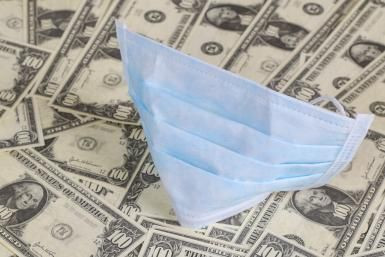Texas Man Charged In $1 Million Wire Fraud Scheme Of PPP Funds
KEY POINTS
- A man in Houston, Texas, was charged for a wire fraud scheme involving over $1 million from the Paycheck Protection Program
- Investigators found the two businesses that applied for the PPP loans did not exist until days before the applications were filed
- The Government Accountability Office previously warned fraud was a risk given the speed at which the first PPP loans were approved and sent out
A Houston man is facing fraud charges for allegedly transferring around $1 million in federal aid from the Paycheck Protection Program meant for a barbecue company and a landscaping company.
“Joshua Thomas Argires, 29, of Houston, Texas, is charged in a criminal complaint, unsealed Monday upon his arrest, with making false statements to a financial institution, wire fraud, bank fraud and engaging in unlawful monetary transactions,” the U.S. Department of Justice said in a press release.
The criminal complaint alleges that Argires had applied for two loans under the PPP at two banks for businesses under the names of “Texas Barbecue” and “Houston Landscaping.” Together the loan requests totaled around $1.1 million meant to cover payroll, interest on mortgages, rent and utilities under federal law.
Once Argires acquired the funds, he allegedly wired the money meant for “Texas Barbecue” into a private cryptocurrency account. The money for “Houston Landscaping” was kept in a separate bank account and withdrawn via ATMs over time.
The money was reportedly flagged, sparking a multi-agency investigation into both companies.
During the investigation, U.S. Postal Service investigators found “Texas Barbecue” did not exist until four days before the PPP application. When confronted by investigators after this was discovered, Argires said employees were paid through Coinbase but he didn’t “manage that aspect” of the business. Investigators found the Coinbase was controlled directly by Argires and no employees were paid.
The case highlights problems the Government Accountability Office had reported in June over the speed in which PPP was enacted after the CARES Act was signed into law. It warned due to the high number of initial loan requests and “limited safeguards” in place, there was a “significant risk that some fraudulent or inflated applications were approved.”
No other suspects have been identified or charged in the investigation.

© Copyright IBTimes 2024. All rights reserved.





















